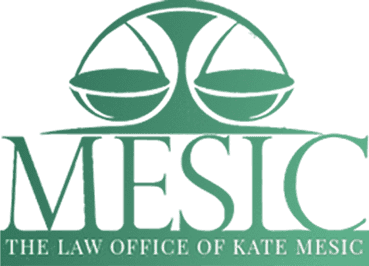
10 FREQUENTLY ASKED QUESTIONS ABOUT A BUSINESS SALE
Business sales are both exciting and stressful. Both seller and buyer are starting new chapters in their lives. The seller is getting out of business and sometimes retiring or sometimes starting something new. The buyer is excited because they’re starting a new adventure and undertaking new responsibilities, which both are rewarding and challenging.
A business sale is a friendly transaction as both parties really want it to go through.
Our office represents both buyers and sellers of businesses, but different considerations must be thought through when representing a buyer versus a seller of a business.
Here are 10 most frequently asked questions about a business sale:
1. I want to sell my business and the buyer will take over my company.
What does that really mean? I always ask the seller: Are you selling the assets of the business (asset sale) or are you selling the stock or the membership interest in your company? Usually, the seller does not know the difference, so we talk through the considerations that are important here. In an asset sale, the seller is selling the actual stuff that the company owns, such as computers, equipment, automobiles, the name of the company, the goodwill of the company, its social media presence, the website, the client list, and other items.
In a stocks sale, or (in the case of an LLC a membership interest sale), the seller is selling the actual stock in the company.
From a seller’s perspective there isn’t much difference in terms of liability which route to take, there may be tax considerations that always have to be discussed with the seller’s CPA. But for a buyer, a stock sale is always dangerous because they’re also inheriting whatever liabilities the company had.
Sometimes a stock sale is the only option, that comes up most of the time when a license is involved, such as construction license, painting license, food license, and others. So that is one of the things the buyer wants to acquire, and that license is attached to both the actual company, the name and other identifying information. So that the buyer may not have a choice but to purchase the actual stock.
2. Seller: the buyer will put some money down and the rest I will finance. Is that OK?
From the seller’s perspective, we always advise against being the bank, unless you have no other choice. As a seller you’re accounting on the new owner, the buyer, to come in and run the business as successfully as you can from that money to pay you the purchase price. Sometimes that can be a dangerous exercise. So we think through how to minimize the risk, sometimes that means a higher down payment, or a shorter period of time to pay off the balance.
We also consider how we can secure the transaction with collateral and use personal guarantees, promissory notes, and security agreements.
For the buyer, ‘seller finance’ transaction may be a great way out when they cannot get a loan for a specific amount. This situation comes up a lot when a business owner is ready to exit the business and wants to sell the business to a long-time employee. Someone who has worked in the business, knows the business, understands it, and has a much higher probability of being successful. In this scenario, a ‘seller finance’ option for the whole amount or part of it can work.
3. Seller: my business rents space right now but I’m selling the business, what do I do with the lease?
A lot of times the lease is a very important part of the sale of business transactions. For example, if a restaurant is being sold, the location is key to the continued success of the business. This is one of the biggest questions that I always address with clients: What is the status of the lease? Is the landlord willing to transfer the lease? Is the landlord going to require the new owner of the business to qualify as a tenant? And the biggest one of them all: Will the new owner be able to qualify as a tenant.
We have had several transactions where this exact issue had basically shut down the deal, because the potential buyer could not qualify as a tenant.
4. Seller: the buyer is going to put half of the money down and we want to close quickly. Is this possible?
Business sales can take several months to prepare, depending on their complexity. It is possible to close quickly, but since there are many moving parts we need to make sure everything is done properly. Sometimes the licenses or the lease will delay the closing. You never want to rush things as a buyer or the seller, as the seller wants to be completely out of the business and buyer wants to buy the business/assets without liens or other issues.
In a situation like this, my first question to the seller is: Have you seen proof of funds? Meaning does the potential buyer actually have the money for the down payment. For some simple, but I can give you countless examples where we were almost ready to close and I kept asking do we have proof of funds from the buyer for closing, and we would find out that they didn’t.
5. Seller: we have everything figured out with the buyer and we are ready to proceed.
The terms may be figured out, but I always ask: Have you spoken to your CPA about the tax consequences of this transaction? Has the buyer done the same? In an asset sale, I always prepare IRS form 8594 Asset Acquisition Statement Under Section 1060 which is the allocation of the purchase price. I suggest to both buyer and seller to complete their own and come to an agreement on how these documents will be filed. This can have dramatic tax consequences for both the buyer and the seller.
6. Buyer: I found a great business, I’m ready to buy. Can you help me?
I am always happy to assist with the purchase of a new business and help someone through this exciting time. However, my first question is always: Have you done your due diligence?
By diligence, I mean reviewing financials, conversations with employees, if possible, review of the business’ reputation. Obviously, the financial portion of the review is the most important one. You need to be able to substantiate what the seller is telling you and if you can continue to sustain the business. This is where your CPA is crucial. The CPA will help you review and analyze the financials and ask the right questions
7. Buyer: The seller has a lease agreement, but I’ve been told it’s easily transferable.
See issues discussed in answer to question 3. Until we know for sure from the actual landlord that they will actually agree to transfer the lease and the buyer qualifies to take over, I don’t suggest the transaction go forward. The location is usually key to the business.
8. Buyer: the seller says there is debt, but it will be taken care of. What do I need to do to protect myself?
The simple answer is “it depends.” It can be a lien on the assets or stock. If that is the case, it needs to be taken care of at closing or before. It can be debt of the business, that needs to be also taken care of at closing or before.
9. Buyer: if I purchase stock of the business, am I still protected?
From the buyer’s perspective, it is more risky to buy a stock (or membership interest in the LLC) than buying the assets, because you could inherit the liabilities of the existing business. But sometimes there is no other choice. For example, when there are licenses attached to the business, and they cannot be transferred. So due diligence becomes key in these situations.
10. Buyer: the business is a franchise; do we need the approval of the franchisor?
Yes, yes, and yes. Everything must be approved by the franchisor. Usually in those scenarios, I will also review the franchise agreement to make sure the buyer understands exactly what they are getting into. There is also a transfer fee involved, and that is negotiable as to who is going to pay it.


Our Settlements & Verdicts
Our top priority is to devise customized legal strategies that are tailored to the unique legal needs of our clients, no matter how simple or complicated their situations, might be.
-
Charges dropped Accident-Failed to Give Information and Improper Backing
-
Dismissed Accident-Leaving the Scene, Careless Driving
-
Expunged Allow Minor Alcohol at Open House Party.
-
Charges Dropped Allow Minor Alcohol ot Drugs at Open House Party
-
1 count of battery amended, others dropped Battery
-
Reduced to municipal ordinance charge Battery


